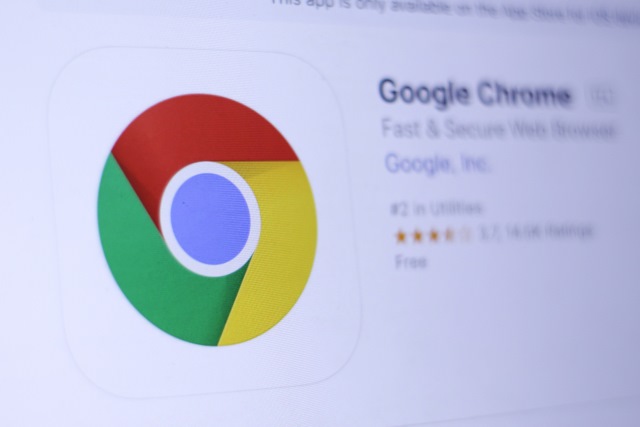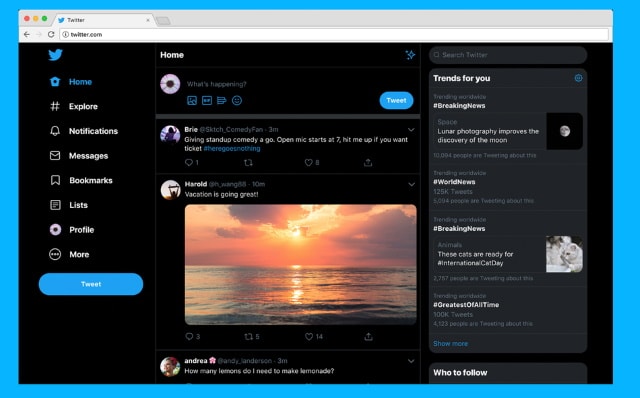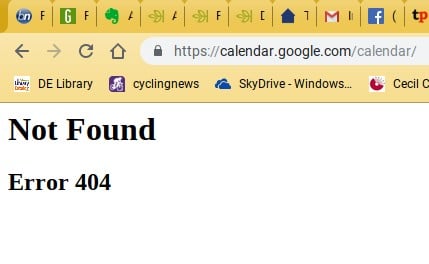Chrome 76 arrives, blocking Flash and making paywalls easier to bypass
Google has released Chrome 76 for Windows, macOS and Linux. As expected from the preview releases, this version of the browser brings a couple of important changes: Flash is now blocked by default, and Incognito mode detection is also blocked.
The blocking of Flash will be welcomed by many, and -- once word spreads about what the implications are (namely that it makes it far easier to get around paywalls) -- the same is likely to be true of the changes to the detection of Incognito mode. The changes have been welcomed by privacy and security advocates.

Hate the new-look Twitter? Here's how to get the old version back
People are often resistant to change, particularly when it feels like change for the sake of change -- and this is certainly the feeling that abounds with the recent redesign of Twitter.
While some Twitter users have been working with the new look for some time, it only rolled out globally a couple of weeks ago. Predictably, the reaction has been mixed, but the redesign has certainly not been met with universal praise. If you're one of the many who hate the way things are now, you'll be frustrated to learn that Twitter does not give you a way to revert back to the old look. But where there's a will, there's a way...

European Commission rules that UK dwelling EU citizens can still hold .eu domains after Brexit
What Brexit really means for the UK -- whenever it may end up happening -- still remains to be seen. But a new ruling by the European Commission means that even after leaving Europe, UK citizens will still be able to hold .eu top-level domains after leaving the European Union.
The ruling is a reversal of a decision taken earlier in the year that EU citizens living in the UK post-Brexit would not be able to own such domains. It comes as the Commission becomes increasingly concerned about the "uncertainties surrounding the ratification of the Withdrawal Agreement", and what the implications of this could be.

Google boosts Chrome bug bounties
Bug bounty programs have become a popular way for companies to unearth security issues in software and address them quickly. Google is no stranger to such programs, and it has just announced massive increases to the payouts made for finding vulnerabilities in Chrome.
Some rewards have doubled while others have tripled, taking the maximum compensation for reporting a security flaw in Google's web browser -- and other Chromium-based browsers -- to an impressive $30,000.

Google is closing a Chrome API loophole to make Incognito Mode more secure and private
Following increasing awareness that using Incognito Mode in Chrome can be detected, and it is still possible for sites to track your online behavior when you're using it, Google has announced upcoming changes that will close a loophole.
The update is due at the end of this month and it addresses a chink in the FileSystem API. Google says the change are coming in Chrome 76, and will also make it harder for publishers to determine when people are trying to bypass paywalls.

Google kills off its censored Chinese search engine, Project Dragonfly
Google has decided to close down its controversial Project Dragonfly which would have seen the company launching a censored version of its search engine in China.
The company's vice president of public policy, Karan Bhatia, made the revelation speaking at a Senate Judiciary Committee hearing yesterday. She said simply: "We have terminated Project Dragonfly".

New platform simplifies the creation of interactive online guides
As we carry out more of our day-to-day tasks online, there's increasing demand for guides and tutorials to help users get the best from services and products. But creating these guides can be time consuming and take developer time away from other tasks.
A new platform called Stonly seeks to let anyone create easy-to-follow guides called 'Stonlies' without any need to write code. Content including text, images and videos can be combined with interactive capabilities to ensure the viewer only gets relevant information.

Twitter redesign rolls out on the web
Twitter is rolling out a faster, redesigned version of its website, bringing not only a new look to the desktop, but also a range of new features.
It's now possible to bookmark tweets -- something users have been asking for for a very long time -- there is a darker dark mode, and the Explore feature from Twitter's mobile apps makes its way to the web. There's certainly a lot to like, but the fact that the new look is not optional is likely to grate with some users.

It's 2029, you're paying more to read this page at peak time (and we're paying your ISP to stop you visiting other tech sites)
What would a world be like where ISPs and businesses are in control of everything you see and do online? A world, in other words, without net neutrality.
VPN comparison site TheBestVPN.com has been considering this and has created an interactive simulator looking at what the web without net neutrality could look like in 2029.

Google Calendar for web is currently down
Take the day off! Seriously, at the moment you have no appointments or meetings. Well, you still do, but if you’re relying on Google Calendar then you’re out of luck at this moment because the web version is currently not available.
Efforts to access calendar.google.com result in an error page being displayed. The white screen simply states "Not Found Error 404", something any half-experienced internet user will certainly be familiar with.

Genius.com uses clever entrapment technique and accuses Google of stealing song lyrics from its site
Ask Google what the lyrics to a particular song are and the chances are that the search results will display them in an info pane as well as links to lyrics sites. But where does Google get these lyrics from? Have Googlers sat and manually transcribed the words to songs ready or when people search for them?
No. Actually, there's a high chance that Google has simply scraped the lyrics from other sites, and one lyrics website says it caught the company red-handed. Genius.com used "Morse code" to catch the company lifting content directly from its lyric database.

Wi-Fi past, present and future
Wireless networking is something we've come to take for granted in recent years. ISPs often give away a wireless router when you sign up for an internet connection with the consequence that Wi-Fi is now in most homes.
Networking specialist Netgear has produced an infographic looking at the origins of Wi-Fi, how it's developed and where it’s going in future.

TripAdvisor responds to Change.org petition on sexual assault 'cover-ups'
TripAdvisor is one of the top services utilized by travelers. It’s a source for everything you should know about your destination, regardless of how obscure or isolated it may be. Need to know lesser-known gems to see, or the less touristy places to visit? Check there.
One of the more important services offered by TripAdvisor covers wayfarer safety, which can mean any number of things from violence to pickpockets to scams.

YouTube clamps down on hate speech by banning supremacism, Holocaust denial and more
YouTube's on-going battle against hate speech on its platform continues, and the site has just announced new policies that it hopes will help to further curb the problem.
As part of its new rules, YouTube is now taking a tougher stance against discriminatory material, banning supremacist videos such as those that promote Nazism. Also banned are videos that seek to spread misinformation by denying that "well-documented violent events", such as the Sandy Hook Elementary shooting, ever occurred. Holocaust denial is also banned.

Flipboard hacked -- attackers had access to database of user information for 9 months
Flipboard is resetting the passwords of millions of users after suffering a data breach. Hackers were able to access databases containing usernames and passwords, as well as access tokens for some third-party services.
The company has not revealed how many users are affected by the security incident, but says that hackers had access to its systems for a nine months.